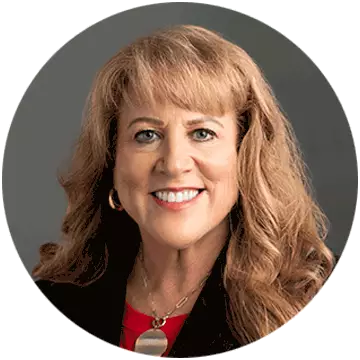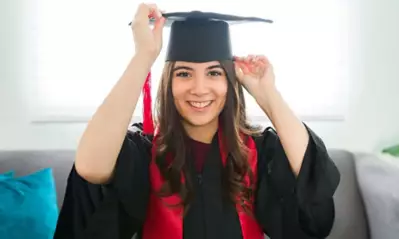How to use life experiences in your curriculum

Written by Michael Feder

Reviewed by Pamela M. Roggeman, EdD, Dean,╠²College of Education

The concept of experiential learning in the classroom refers to using real-world experiences as a way of illustrating a lessonÔÇÖs practical application.
Simply put, experiential learning incorporates real-world experiences in formal education, and it can benefit educators and students alike. According to educational researchers,╠² such as a broader sense of community and more opportunities for collaboration.╠²
Using life experiences in curriculum
Experiential learning is one way╠²future educators╠²│ª▓╣▓È╠²bring the value of their lived experiences (as well as those of others!) into the classroom. Done right, this can foster deeper connections with students.
The following are some ways to bring experiential learning to students.
Focus on empathy
Empathy allows you to better understand how others feel. This skill fosters stronger relationships and connections throughout life.
In the classroom, teachers can cultivate empathy in a number of ways, such as:
- Research-based projects where students learn more about a historical figure or leader
- Group work and partner work that requires collaboration and cooperation
- Projects that take place in the community
In addition to projects, teachers are often role models for their students, especially when they have╠²qualities that make teachers especially effective in the classroom. To incorporate empathy into your teaching underscores the value of this quality and helps students recognize its value and develop it within themselves.
Give students tangible items to examine
Students have╠²different learning styles. For example, some students are auditory learners who can easily absorb information while listening to a lecture or presentation. Other students benefit from hands-on learning.
With hands-on learning, students can learn while doing. This includes holding and manipulating objects during a lesson. For example, if a student is learning about dinosaurs, touching real fossils can help drive the lesson home in a memorable, experiential way. Students might even practice the techniques of archaeologists or try to identify the fossils.
Giving students concrete experiences to complement the lessons can help them better understand the concepts youÔÇÖre teaching. ╠²
Go on field trips
Field trips are one of the best experiential learning opportunities. Why? They take students out of the classroom and into the real world ÔÇö exactly what the concept of experiential learning is predicated on.
Field trips that let students see professionals working in their jobs can be particularly impactful. If your students are learning about mechanics and engineering, for example, taking them to a factory or lab can frame the lesson in a new, highly visual and experiential way. Similarly, if theyÔÇÖre learning about biology, a trip to a zoo, national park or research institute may be effective.
Field trips allow your students to ask questions, explore new environments and learn outside of the classroom.
Invite guests to the classroom
Bringing in guest speakers allows your students to learn from the experience of someone beyond yourself.
If youÔÇÖre an English teacher, ask a writer or journalist to present to your class. If youÔÇÖre a science teacher, invite a researcher or local professor. The students can learn from the experiences of these professionals, and auditory learners may also benefit.
If you teach high school or college students, guest speakers can also offer opportunities for your students to engage with possible mentors and community leaders.
Practice inclusivity
Teaching students how to work and get along with and include others helps them become more inclusive and empathetic adults. But how can you do that? By teaching inclusivity through experience.
Consider assigning various group and partner projects. These projects require the students to work together, even if they are different and have opposing opinions. But with knowledgeable guidance from the teacher, they can learn to communicate with and learn from one another.
Reenact reality
Pulling from real life is a great way to teach, because it combines the best of both hands-on learning with real-world application.
This can be done in a variety of ways. For instance, if youÔÇÖre a math teacher, you can have your students ÔÇ£openÔÇØ different stores in your classroom so they can practice math concepts like addition, subtraction and percentages.
If youÔÇÖre a history teacher, you might have students dress in costume and act out an important historical moment.
In addition to improving understanding, using real-life examples can help motivate students to pay more attention. They will be more engaged if they know that the lesson has a direct application in the real world.
Stay current on local, national and global news
One way to teach from real-world experience is to pull information from local, national and global news. It is important that you draw from unbiased sources when you pull excerpts from the news for your students to read. This allows the students to learn and form their own opinions without being impacted by the biases of others.
There are many ways your students can engage with current events. Your class can keep track of a local council election, or you can require your students to bring in one news article a week to share with their classmates. You can also conduct classroom debates about current events to help improve your studentsÔÇÖ oral communication skills.
No matter how you incorporate experiential learning, it can benefit your students and their learning potential. Whether you take students out into the real world or bring the world into your classroom, the experiences you share with your students can impact them the rest of their lives.
Earn a degree in education at ░«╬█┤½├¢
If youÔÇÖre interested in learning more about effective teaching strategies and methods, ░«╬█┤½├¢ offers a variety of╠²online education degrees and certificates.
- Bachelor of Science in Education/Early Childhood Education╠²ÔÇö This program teaches curriculum planning, instructional practice, student engagement and many other valuable educational skills.
- Bachelor of Science in Education/Elementary Education╠²ÔÇö If youÔÇÖre eager to learn skills geared toward teaching at the elementary school level, this online elementary education degree offers instructional and leadership knowledge, learning strategies and more.
- Graduate Initial Teacher Certificate/Elementary╠²ÔÇö This certificate is intended for students with no teaching experience. It builds education knowledge and a skill set for those interested in teaching at the elementary level.╠²
- Graduate Initial Teacher Certificate/Secondary╠²ÔÇö This certificate is intended for students with no teaching experience. It builds education knowledge and a skill set for those interested in teaching at the secondary level.
- Master of Arts in Education/Elementary Teacher Education╠²ÔÇö This degree program is designed to prepare you for teacher licensure and will help you build confidence as a general studies teacher in an elementary classroom. This masterÔÇÖs program includes a clinical component (field experience and student teaching), allowing candidates to acquire knowledge, skills and abilities to positively impact student learning and development.
- Master of Arts in Education/Secondary Teacher Education╠²ÔÇö This degree program is designed to prepare you for teacher licensure and will help you build confidence as a single-subject secondary teacher. This masterÔÇÖs program includes a clinical component (field experience and student teaching), allowing candidates to acquire knowledge, skills and abilities to positively impact student learning and development.

ABOUT THE AUTHOR
A graduate of Johns Hopkins University and its Writing Seminars program and winner of the Stephen A. Dixon Literary Prize, Michael Feder brings an eye for detail and a passion for research to every article he writes. His academic and professional background includes experience in marketing, content development, script writing and SEO. Today, he works as a multimedia specialist at ░«╬█┤½├¢ where he covers a variety of topics ranging from healthcare to IT.

ABOUT THE REVIEWER
As dean of the ░«╬█┤½├¢ College of Education,╠²Pamela Roggeman has spent over a decade in higher education teacher preparation in both the public and private sector. Her experience has included national partnerships that help to advance thought leadership in the field of education. Dr. Roggeman also serves as the President of the Arizona Educational FoundationÔÇÖs Board of Directors.
This article has been vetted by ░«╬█┤½├¢'s editorial advisory committee.╠²
Read more about our editorial process.
Read more articles like this:╠² ╠² ╠² ╠² ╠² ╠² ╠² ╠² ╠² ╠² ╠² ╠² ╠² ╠² ╠² ╠² ╠² ╠² ╠² ╠² ╠² ╠² ╠² ╠² ╠² ╠² ╠² ╠² ╠² ╠² ╠² ╠² ╠² ╠² ╠² ╠² ╠² ╠² ╠² ╠² ╠² ╠² ╠² ╠² ╠² ╠² ╠² ╠² ╠² ╠² ╠² ╠² ╠² ╠² ╠² ╠² ╠² ╠² ╠² ╠² ╠² ╠² ╠² ╠² ╠² ╠² ╠² ╠² ╠² ╠² ╠² ╠²╠²


